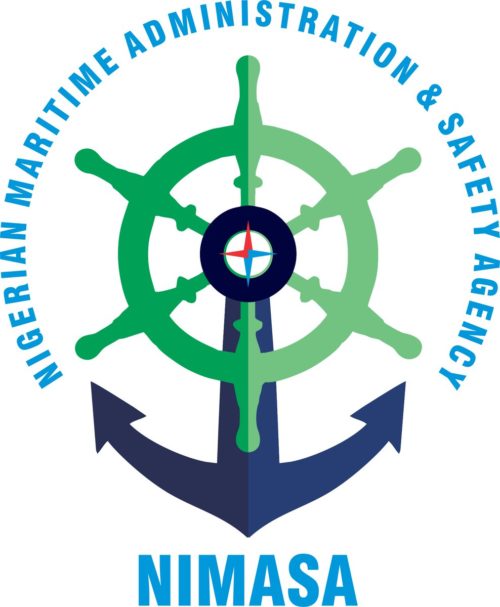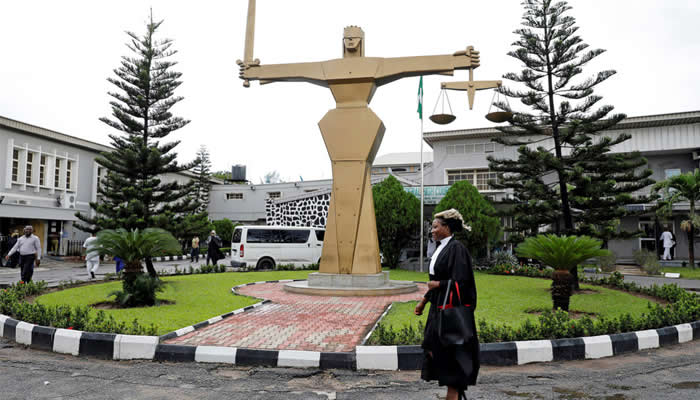Abuja, Nigeria – September 1, 2025 – The Nigerian Maritime Administration and Safety Agency (NIMASA) has taken a significant step toward transforming Nigeria’s maritime sector by concluding a strategic retreat where Departmental and Unit Heads signed performance bonds with the Executive Management. This landmark initiative, aimed at aligning the agency’s operations with the Federal Government’s priorities for the maritime and blue economy sector, underscores a renewed commitment to accountability, efficiency, and measurable outcomes. The retreat, held in Abuja, brought together senior staff and executives to strategize on unlocking the full potential of Nigeria’s maritime industry, with a focus on advancing the nation’s economic diversification agenda.
The signing of the performance bonds, as announced by NIMASA, marks a pivotal moment in the agency’s efforts to institutionalize a performance-driven culture within Nigeria’s maritime sector. Addressing participants at the retreat, NIMASA’s Director General/CEO, Dr. Dayo Mobereola, emphasized that the bonds are not merely symbolic but binding agreements designed to ensure that staff deliverables align with the vision of the Federal Government and the Ministry of Marine and Blue Economy. “The signing of this bond is not symbolic; it is binding,” Mobereola declared, highlighting the administration’s determination to entrench a performance-driven public service. This move follows the signing of performance bonds on May 13, 2025, between the Minister of Marine and Blue Economy, Adegboyega Oyetola, and the chief executives of agencies under the Ministry, including NIMASA, further cascading accountability throughout the sector.
Context and Significance of the Performance Bonds
The performance bonds represent a formal commitment by NIMASA’s leadership to deliver on specific, measurable targets that support the Federal Government’s Renewed Hope Agenda and the Ministry’s strategic objectives. These objectives include enhancing maritime safety, promoting sustainable economic growth through the blue economy, and strengthening Nigeria’s position as a global maritime hub. The retreat featured robust discussions, peer reviews, and strategy sessions aimed at addressing critical challenges in the sector, such as maritime security, regulatory compliance, and capacity development.
Nigeria’s maritime sector is a cornerstone of its economy, contributing significantly to GDP through shipping, port operations, and offshore oil and gas activities. With 853 kilometers of coastline and an Exclusive Economic Zone (EEZ) spanning 200 nautical miles, the country possesses immense maritime potential. However, challenges such as piracy, illegal fishing, and inadequate infrastructure have historically limited the sector’s contributions. The performance bonds are designed to address these issues by fostering accountability at every level of NIMASA’s operations, ensuring that the agency plays a pivotal role in advancing Nigeria’s blue economy agenda.
The initiative aligns with broader reforms under the Ministry of Marine and Blue Economy, established in August 2023 by President Bola Ahmed Tinubu to harness Nigeria’s maritime resources for economic diversification. The Ministry, led by Minister Adegboyega Oyetola, has prioritized performance-driven governance, with the signing of performance bonds between the Minister and agency heads serving as a precursor to NIMASA’s internal cascade. By embedding these agreements at departmental and unit levels, NIMASA aims to create a culture of transparency, innovation, and measurable progress, ensuring that the maritime sector contributes significantly to Nigeria’s economic growth.
Strategic Objectives of the Retreat
The strategic retreat was a critical platform for aligning NIMASA’s operations with national priorities. Key areas of focus included maritime safety administration, maritime labor regulation, marine pollution prevention and control, search and rescue operations, cabotage enforcement, shipping development, ship registration, and seafarer training and certification. These areas reflect NIMASA’s multifaceted mandate, as outlined on its official website, to enthrone global best practices in Nigeria’s maritime services.
Dr. Mobereola emphasized that the retreat was not a one-off event but part of a continuous process to unlock the sector’s potential. “We are here to ensure that every staff member’s deliverables are directly tied to the vision of the Federal Government and the Ministry,” he said. The retreat featured technical discussions on leveraging technology and innovation to enhance safety, security, and environmental sustainability. For instance, NIMASA’s ongoing digitalization efforts, such as the Maritime Labour E-Platform and the Maritime Enhanced Monitoring System (MEMS), were highlighted as tools to improve transparency and efficiency.
The performance bonds are structured to track progress through quarterly reviews, with clear metrics for assessing departmental and individual performance. This approach mirrors the Ministry’s broader strategy, as articulated by Minister Oyetola during the May 2025 sectoral retreat, where he emphasized the need for “practical, measurable commitments” to increase the blue economy’s contribution to GDP and create jobs. By institutionalizing these bonds, NIMASA is aligning its internal operations with the Ministry’s goal of maximizing Nigeria’s maritime potential.
Economic and Strategic Implications
The signing of the performance bonds comes at a critical juncture for Nigeria’s economy, which is heavily reliant on oil and gas exports but seeking to diversify through non-oil sectors like the blue economy. The maritime sector, encompassing shipping, fisheries, tourism, and renewable energy, has the potential to create millions of jobs and drive sustainable growth. According to a 2023 report by the Nigerian Institute for Oceanography and Marine Research (NIOMR), the blue economy could contribute up to $20 billion annually to Nigeria’s GDP if fully harnessed.
NIMASA’s efforts to reform the maritime sector are particularly significant in light of Nigeria’s economic challenges, including inflation (32.15% in August 2025) and naira depreciation. By enhancing regulatory oversight, improving maritime security, and promoting indigenous participation, the agency aims to attract both domestic and foreign investment. The performance bonds are a key mechanism for ensuring that these goals are met, with clear accountability measures to address underperformance. As Dr. Mobereola warned, “Anyone found creating bottlenecks or underperforming will be held accountable,” signaling a zero-tolerance approach to inefficiency.
The retreat also addressed Nigeria’s bid for a Category C seat on the International Maritime Organization (IMO) Council for the 2026/2027 biennium, a strategic objective that underscores the country’s ambition to lead in global maritime governance. Minister Oyetola has described this bid as a “national priority,” emphasizing the need for agencies like NIMASA to showcase Nigeria’s readiness through operational excellence and adherence to international standards.
Collaboration and Stakeholder Engagement
The success of NIMASA’s reforms depends on collaboration with a wide range of stakeholders, including other government agencies, private sector operators, and international partners. The retreat featured contributions from the Nigerian Ports Authority (NPA), the Nigerian Shippers’ Council (NSC), and the National Inland Waterways Authority (NIWA), all of which signed performance bonds with the Ministry in May 2025. This inter-agency collaboration is critical for addressing systemic challenges, such as port congestion, maritime insecurity, and regulatory overlaps.
NIMASA’s partnership with the Bank of Industry (BoI) is another example of its commitment to stakeholder engagement. In September 2024, the two entities initiated discussions to enhance capacity building in the maritime sector, focusing on financing mechanisms to support indigenous shipowners and operators. Dr. Mobereola, represented by Executive Director Jibril Abba, emphasized that collaboration is a vital tool for achieving NIMASA’s mandate and repositioning the maritime sector as a key driver of economic growth.
Internationally, NIMASA is advocating for innovative financing models to support Africa’s maritime industry. At the 7th Association of African Maritime Administrations (AAMA) Conference in Dar es Salaam, Tanzania, in December 2024, Dr. Mobereola called for technical and financial investments to enhance safety, security, and decarbonization. “Nigeria is committed to collaborating on technology and innovation to ensure a sustainable future for Africa’s maritime sector,” he said, highlighting the need for regional cooperation to address shared challenges like piracy and illegal fishing.
Challenges and Opportunities
Despite the optimism surrounding the performance bonds, NIMASA faces significant challenges in implementing its reform agenda. Maritime insecurity, particularly in the Gulf of Guinea, remains a major concern. Although piracy incidents have declined due to initiatives like the Deep Blue Project and Operation Delta Sanity, illegal activities such as oil theft and smuggling continue to threaten the sector’s stability. The C4i Centre at NIMASA’s Maritime Resource Development Centre in Kirikiri, Lagos, plays a crucial role in monitoring these threats, but sustained investment in technology and personnel is needed to maintain progress.
Infrastructure deficits also pose a challenge. Many of Nigeria’s ports suffer from outdated facilities and inefficient processes, which hinder throughput and deter investors. The Ministry’s ongoing efforts to modernize port infrastructure, as highlighted by Minister Oyetola, include the implementation of the National Single Window platform and the disbursement of the Cabotage Vessel Financing Fund (CVFF). These initiatives, supported by NIMASA’s performance bonds, aim to address these gaps and enhance operational efficiency.
The opportunities, however, are immense. Nigeria’s maritime sector has the potential to become a regional powerhouse, leveraging its strategic location and natural resources. The blue economy, encompassing sustainable fisheries, marine tourism, and renewable energy, offers a pathway to diversify Nigeria’s economy away from oil dependency. NIMASA’s focus on capacity development, including seafarer training and certification, is critical for building a skilled workforce to drive this transformation.
Broader Policy Context
The performance bonds are part of a broader policy framework under the Ministry of Marine and Blue Economy, which has set ambitious targets for 2025. These include increasing the sector’s contribution to GDP, creating jobs, and improving compliance with international maritime conventions. The Ministry’s National Policy on Marine and Blue Economy, approved by the Federal Executive Council in May 2025, provides a strategic roadmap for these goals. NIMASA’s performance bonds are aligned with this policy, ensuring that agency-level commitments translate into tangible outcomes.
The initiative also reflects President Tinubu’s emphasis on results-driven governance. During the 2023 performance bond signing with agency heads, Tinubu urged ministers and agency leaders to demonstrate “innovative thinking and an unrelenting focus on results.” NIMASA’s internal cascade of these bonds demonstrates its alignment with this directive, positioning the agency as a leader in the Ministry’s reform agenda.
Stakeholder Reactions and Expectations
The business community and maritime stakeholders have welcomed NIMASA’s commitment to accountability but remain cautious about implementation. The Nigerian Merchant Navy Officers and Water Transport Senior Staff Association, during a recent visit to NIMASA’s headquarters, expressed support for the agency’s efforts to foster a level playing field for indigenous operators. However, they urged greater collaboration with the Nigerian Content Development and Monitoring Board (NCDMB) to ensure local participation in maritime activities.
Industry experts have also called for transparency in monitoring the performance bonds. “The success of this initiative depends on how NIMASA tracks and reports progress,” said Dr. Bolaji Akinola, a maritime analyst. “Clear metrics and regular updates will build public confidence in the agency’s reforms.” The CAC’s recent postponement of its revised fee implementation due to technical glitches serves as a cautionary tale, highlighting the importance of robust systems to support reform efforts.
Conclusion
The signing of performance bonds by NIMASA’s Departmental and Unit Heads marks a transformative step in Nigeria’s maritime sector, reinforcing the agency’s commitment to accountability, efficiency, and economic growth. By aligning its operations with the Federal Government’s priorities, NIMASA is positioning itself as a key driver of the blue economy, with the potential to create jobs, enhance security, and attract investment. The strategic retreat and performance bonds underscore a culture of discipline and innovation, setting a precedent for other agencies under the Ministry of Marine and Blue Economy.
As Nigeria navigates economic challenges and seeks to diversify its economy, NIMASA’s reforms are a beacon of hope. The agency’s focus on digitalization, stakeholder collaboration, and global engagement positions it to lead Africa’s maritime industry toward a sustainable future. However, the success of these efforts will depend on overcoming persistent challenges, such as maritime insecurity and infrastructure deficits, while maintaining transparency and stakeholder trust. With the performance bonds as a guiding framework, NIMASA is poised to unlock Nigeria’s maritime potential, delivering tangible benefits to the nation and its people.






